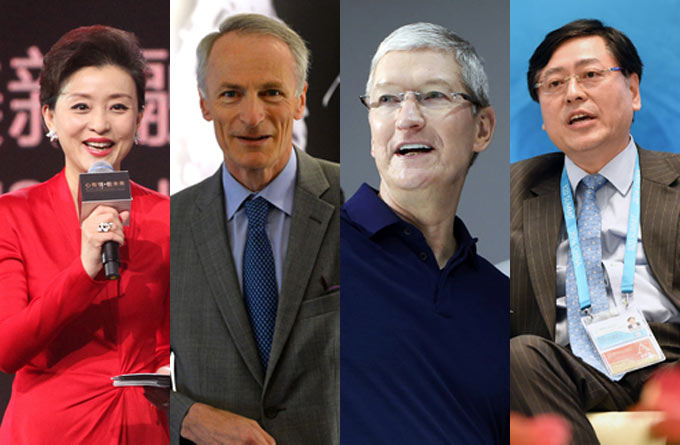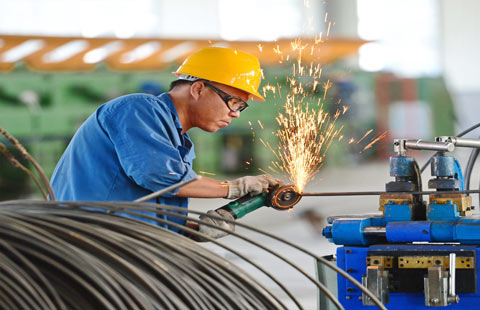Globalization brings win-win, trade war harms all
BEIJING - Economic globalization means win-win for those who ride the wave. A trade war will be a universal wipe-out.
Economist Chen Fengying with the China Institute of Contemporary International Relations believes globalization is historically inevitable, with the only choice being how much time and energy is to be wasted swimming against the tide.
Globalization, according to to Chen, does not mean it comes without its problems. Facing up to these problems and finding solutions are the only way forward.
The door is open
When China talks about seizing every opportunity, facing difficulties together and plotting the best course, China means what it says.
On Tuesday, the State Council adjusted the rules to make it even easier for foreign businesses and individuals to invest in China. This time the focus is on financial institutions. It now makes even more sense for foreign banks, securities and derivatives brokers and insurance companies to put their financial faith in an economy that is no longer the force of nature it once was, but still manages to keep ahead of the chasing pack.
Foreign firms are to be allowed to go public and issue bonds in the Chinese market and much more is being done to protect intellectual property rights.
At the same time, restrictions have been relaxed on foreign capital participating in what has become one of the crown jewels of the world's second biggest economy: rail equipment.
The gateways to high-end, smart and green manufacturing, infrastructure and environmental protection have been opened wider. And for those businesses that wish to support China's relentless drive against poverty, building new plants in central, western and northeastern areas just became an even more attractive proposition.
Money in, money out
"Inclusive growth is China's answer to questions of whether globalization can benefit all," said Vice Finance Minister Zhu Guangyao.
Foreign direct investment in the Chinese mainland rose 4.1 percent in 2016 to 813 billion yuan (around $118 billion).
In the next five years, China expects to attract $600 billion of foreign investment, import $8 trillion of goods and invest $750 billion overseas. At the same time, Chinese tourists will make 700 million trips out of the country.
China's resilience will continue to offer growth opportunities amid the global economic quagmire, after the country has contributed about 30 percent of world growth annually since the international financial crisis struck.
Braving the elements
The benefits of globalization far outweigh the costs for developed and developing economies alike.
"Protectionism and de-globalization noises might calm domestic dissent in the short term, but will harm the public interests in the long run," said Zhang Yuyan, director of the Chinese Academy of Social Sciences institute of world economics and politics.
Pursuing protectionism is "like locking oneself in a dark room," Chinese President Xi Jinping told the World Economic Forum in Davos this week. "While wind and rain may be kept outside, that dark room will also block light and air."
"No one will emerge as a winner in a trade war," Xi told the world's most authoritative audience. "China has no intention to boost its trade competitiveness by devaluing the RMB, still less will it launch a currency war."
Building on 30-odd years of reform, China has worked hard over the past four years to inject impetus into its development.
"Maybe the world should take a leaf out of China's book: reform, innovate, seek common development, open up," said Zhang Shuyu of the University of International Business and Economics.

















